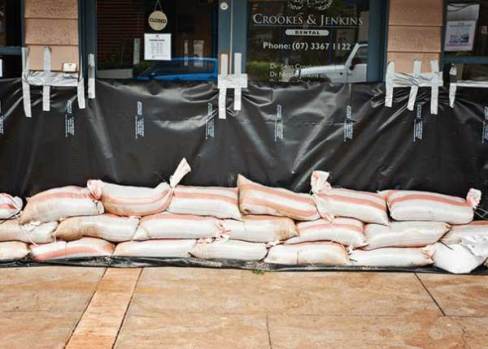By Julian Bajkowski
City of Sydney Lord Mayor Clover Moore is set to export her controversial bid to transform the inner city’s late night economy from a landscape of beer barns, bouncers and bad kebabs to chic small bars and gourmet food trucks to other councils across the city.
According to the City of Sydney around forty local governments have flocked to lessons on how to civilise and sanitise late night leisure activities in their areas at a forum held at the Museum of Contemporary Art on Monday.
Ms Moore’s policy to inject competition into night time trading by giving small venues liquor licences for a fraction of the price of those required by pubs has infuriated the licensed hotels industry that has for decades thrived on a combination of on-premises restrictions on alcohol sales and the introduction of all-night trading and poker machines.
The City of Sydney’s promotion of small bar licences provoked the now infamous sledge of Ms Moore from former Australian Hotels Association president John Thorpe that people didn’t want to “sit in a hole and drink chardonnay and read a book.”
But whether it’s old school Chardonnay or more modern Pinot Gris, other Sydney councils clearly want a slice of new age nightlife and it’s not hard to see why.
Better management of licensed premises has long been a concern for councils who incur the wrath of local residents and the cost of cleaning-up after messy drunks as they spill out of all night venues that are essentially regulated by the state government.
One of the City of Sydney’s more polarising initiatives has been the deployment of temporary street urinals to divert weak-bladders away from walls, doorways and gardens.
“Across the city, councils face many of the same issues and challenges when it comes to managing the late-night economy,” the Lord Mayor said.
“We started this work two years ago after a worrying increase in anti-social behaviour and late-night violence.
A key element of the City of Sydney’s plan broaden the appeal of night-time activities by making it easier for innovative new businesses, like small bars, to set-up and thrive in areas that have more affordable commercial rents but were otherwise shunned by those out on the town at night.
Some of the areas experiencing a surge in late popularity include once dingy back-streets in Redfern and Darlinghurst as well as along Parramatta Road that extends through several local governments and is a major public transport route.
One of the reasons for peaked interest in Ms Moore’s nocturnal activities by other councils is that those out of an evening usually do not restrict themselves to one area if they can help it.
“Sydney’s night-time economy extends well beyond our local government area, with many of the people coming into our city at night travelling in from other council areas,” Ms Moore said.
“Bigger challenges, like public transport and dealing with anti-social behaviour, can only be solved with all levels of government working together.”
It also brings more money into councils.
While the social benefits of innovations like gourmet food trucks and small bars might seem the most obvious payoff, local governments across the city stand to gain an increase in licensing, permit and even parking revenue from areas that experience a revival of nightlife.
The City of Sydney estimates the value of its night time economy in 2011 was $2.76 billion.
“A well-functioning night-time economy creates more jobs, more opportunities for people to enjoy their recreation, and brings more money into the local economy,” Ms Moore said.
Apart from small bars and food trucks, topics on the menu for discussion at Ms Moore’s after-dark soiree include late night trading development control plans, creative precincts, activating public spaces and ways to stage live music.
Councils listed as attending the workshop include: Ashfield; Auburn; Bankstown; Blacktown; Blue Mountains; Botany Bay; Burwood; Camden; Campbelltown; Canterbury; Newcastle; Ryde; Fairfield; Hawkesbury; Holroyd City; Hornsby; Hunters Hill; Hurstville; Kogarah; Ku-ring-Gai; Lane Cove; Leichhardt; Liverpool; Manly; Marrickville; Mosman; Newcastle; North Sydney; Parramatta; Penrith; Pittwater; Randwick; Rockdale; Strathfield; Sutherland Shire; The Hills Shire; Warringah; Waverley; Willoughby; Wollondilly; Wollongong; Woollahra.
Comment below to have your say on this story.
If you have a news story or tip-off, get in touch at editorial@governmentnews.com.au.
Sign up to the Government News newsletter


Marrickville is doing well in this arena. Lots of Cafes and even a few bars popping up. Cant wait to see what the future holds for marrickville LGA.
Clover’s small bar licencing initiative may help civilise the streets of Sydney, and I would hopie many Metropolitan councils follow suit. For too long the City’s pubs, with bad food, bouncers and dirty amenities have had it their own way.